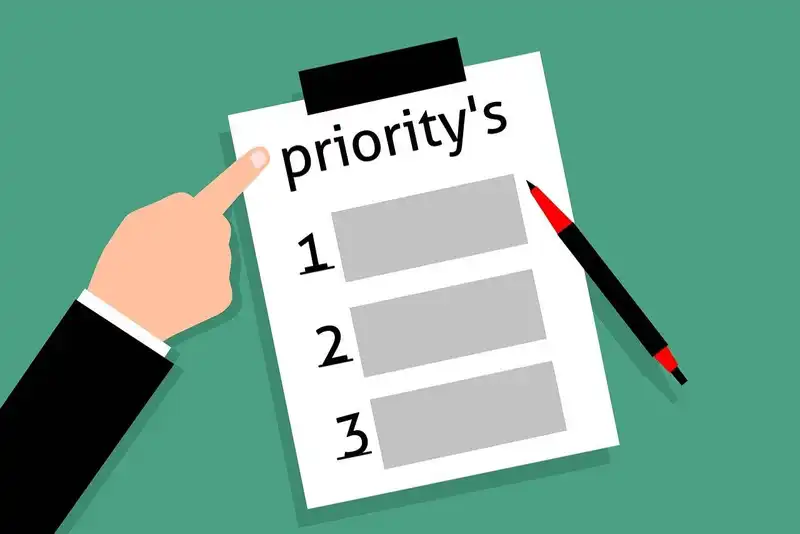Effective Time Management- Tips to Improve Your Time Management
A brief guide to effective time management
Time management is a method of taking control of your day by dividing your time effectively between jobs and activities, learning to prioritize work, and utilising best practices and resources to grow your business and achieve a work-life balance. Making a to-do list and getting a day planner aren't enough. Time management requires constant awareness, commitment, and the ability to stay focused on the schedule. In the near term, time management reduces stress. Better time management pays off in the long run-in terms of professional and personal growth, as well as cost savings.
Principles of effective time management for success

Making a daily success plan and sticking to it with all of your focus and energy will result in better time management. A person who manages time well every day can accomplish more in less time. Here are a few principles of good time management that will help you execute effective time management strategies-
Plan in advance - Take a few minutes at the end of the day to make a list of things to be done the following day. The first thing in the morning you must do is take a few minutes to review your day's plan, as you have to execute it throughout the day. Personal planner journals or digital tools can come in very handy as you prioritize tasks, and plan execution. Once you diligently stick to using these tools, they also help you improve your time management skills.
Have realistic schedules - The best way to make time management strategies is to make a timetable for the week before it begins, and don't be too hard on yourself by setting unrealistic goals for your important tasks. This will only lead to decreased productivity, disappointment, and a disruption in your time management. Instead, concentrate on becoming the best you can be and don't stress about things you can't control or handle.
Organize and prioritize - One of the important principles of effective time management is the ability to distinguish between what is important and what is urgent. It's worth remembering that the most critical responsibilities aren't always the most urgent, and vice versa. To prioritize your responsibilities and designate them as of high, medium, or low importance, you can utilize daily, weekly, and monthly checklists. There are many tools and resources available to help you complete tasks and manage time effectively. For example, you can use project management software if you're working on a project, or time management or time tracking software if coordinating staff shifts is a big part of your daily routine. This software prevents you from wasting time.
Don't multitask - Multitasking is not a part of good time management strategies. It causes a constant shift in focus and makes any work take longer to complete. This is because your brain has grown accustomed to moving between tasks and is no longer capable of focusing only on one task at a time.
Avoid distractions - The constant ringing of the doorbell, along with unscheduled phone calls, messages, or social media notifications, are some of the most difficult distractions to avoid and often result in poor time management. You must know how to avoid these. Applying the Pomodoro technique of working in short chunks and wearing noise cancelling headphones also helps in maximizing productivity.
Learn to say "no" - Spend time and focus on the activities that are part of your day's plan, and learn to say "no" to tasks that aren't essential to you. Many people overload themselves with work by taking on too much.
Delegate and collaborate - Share your responsibilities to the extent possible by delegating tasks to someone who has comparable efficiency and who possesses the necessary skills, interest, and experience. You can also collaborate on tasks together with your coworkers or neighbors to get mundane but important tasks done, such as dropping kids off at school, getting groceries from the supermarket, or picking up a parcel, etc.
Stay fit and healthy - Strive to achieve a work life balance, or else you'll end up struggling with moodiness, fatigue, stress, and frequent illness. Waking up early in the morning will give you sufficient time to exercise and rejuvenate your body and mind. That would lead to maximum productivity and focus.
Reward yourself - Give yourself a tiny incentive for completing each important or urgent task during the day. For example, listen to your favorite song or eat a candy as you finish your work within the set timeline. These best practices reinforce your confidence and will motivate you.
You are so busy that you don’t know how to make the most of your time
Effective time management tips from ZipChecklist will help help you to improve your time management
The importance of effective time management
Time management is crucial because it allows you to take control of your own actions- what you do, how you do it, and how productively you are managing time every day. Time Management not only helps you prioritize your work, set time limits for each task, and enables you to meet deadlines, but it also enhances your performance and the quality of your work. It helps you achieve a better work-life balance. As your performance and work quality improve, so do your self-confidence and motivation level.
The essential types of effective time management

Time management, as we all know, allows people to make the most of their time by prioritizing tasks based on their urgency, importance, and deadline. Poor time management leads to stagnation in both your professional and personal life. Take a look at some of the best time management styles that identify what works best for you and how you can improve your time management skills-
Perfectionist
As the name suggests, the perfectionist micromanages and spends too much time on every detail of the process of accomplishing the task.
Multitaskers
These people keep juggling between multiple tasks simultaneously and try to accomplish as many tasks as possible in a short time frame. They are good at transitioning between different tasks, but research proves that multitasking is not the best time management strategy because it does not equate with efficiency, higher output, and productivity, and can even result in a lower IQ.
Cliffhanger
Such people work best under pressure. Their productivity and efficiency emerge best as they get closer to the deadline. Even though the closing deadline doesn't stress the cliffhangers, it may affect the quality of work. They should stop procrastinating for the best results.
Hyperfocus
People demonstrate hyper focus while planning and executing a task and accomplish one task at a time before moving on to the next one. They continue to face the deadline pressure, and their non-flexible approach may prevent them from seeing the emerging bigger picture. For better time management, they should track time better and control time spent on each task.
Big Picture viewer
Such managers always consider the bigger picture of the task plan and its deadline. They strategize the execution by paying attention to the primary goal points of accomplishing the task, Their decision making is creative but they ignore minor details. Such managers can do better by spending time on a daily routine, communicating clearly and collaborating with all the stakeholders who can contribute to the completion of the task.
Impulsive
Such people believe in their knowledge and bank on their creative instincts and not on any time management plan. They do well in managing unexpected challenges, however, due to a lack of plan they always face a risk of missing deadlines. Such people should develop a good habit of setting up a routine and constantly remind themselves of their goals.
How to improve your effective time management skills?

Improving time management skills is all about what you want to achieve in life and how you want to achieve that. It starts with the time management elements such as these-
- Define SMART goals - Specific, Measurable, Achievable, Realistic, and Timely goals are SMART goals.
- Develop weekly priorities
- Time block your schedule - Time blocking will keep you on target and help you avoid distractions.
- Delegate duties
- Take frequent breaks
- Minimize multitasking
- Make meetings productive-Meetings can be made more effective by developing an agenda and a clear action plan, as well as assigning roles and responsibilities.
- Experiment if you want to improve your time management. Experimenting with different time management approaches such as Pomodoro technique or the Pareto principle, which states that 80% of results come from 20% of effort.
You are always in a hurry. You want to do everything but you're not able to do anything
There are many effective time management techniques that can help you get more organized
Benefits of effective time management

It's crucial to be able to successfully manage your time. Your ability to properly manage time can provide you with incomparable advantages-
Here are the key benefits of Time Management-
- Reduce stress - Your to-do list will assist you in managing time and meeting deadlines for your important and urgent tasks, and reducing tension in your daily routine
- More me-time - Setting a timeline with time management strategies allow you to spend more time with your family and pursue your interests
- Personal and professional development - Everyone admires people who can manage time effectively. If you can prioritize urgent and important tasks, as well as accomplish them within the set timeline with the best possible output and quality, you are already on the path to both personal and professional success.
Tips for effective time management

The more focus you have in managing time, the more success you will achieve in personal and professional life. Here are some time management tips to help you complete your tasks with efficiency and high productivity-
- Set SMART goals- Start off your day, week, month with goals that are Specific, Measurable, Attainable, Relevant, and Timely. Make sure you have a clear picture of what you need to do each day.
- Have a checklist in place- Make the task list and prioritize tasks based on importance and urgency.
- Take breaks- Working continuously tires the brain. For clear and fresh thinking carry out work in powerful bursts of energy with well-timed breaks.
- Keep disruptions to a minimum- Minimize avoidable distractions from phone calls, social media, visitors etc.
- Stop procrastinating
- Avoid multitasking
- Setting timelines for completing tasks for focus and efficiency
- Review your day every morning
Managing time is a constant battle. It seems like there's never enough hours in the day to get everything done
Effective time management techniques can help you get more organized, set boundaries, and manage your time effectively

